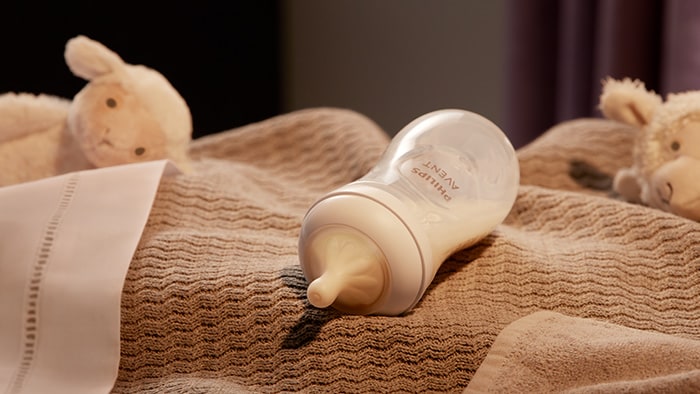By Guest Author Dr. Natasha Burgert, Philips Avent pediatrician
A Doctor’s Guide To Choosing Your Labor And Delivery Hospital
Congratulations! You’re pregnant!
While your head is spinning with excitement and anxiety, the months of pregnancy are also filled with to-do lists and decision-making. Most parents choose to grow their family in a hospital setting. If this is your goal, one of your first decisions to make involves picking a health care team that includes your delivery hospital.
The choice of a labor and delivery hospital should start early. Although it may not seem like it, the hospital that provides your medical care is a central member of your health care team. This is the place that you may get lab work and imaging completed throughout your pregnancy, as well as the place to turn for any unexpected or emergency visits. Having your care at one facility during your entire pregnancy ensures mutual familiarity and trust in this important place.
Trusted Credentials: The first place to turn for hospital recommendations is your preferred obstetrician. Most people don’t know that doctors are only able to serve patients at specific hospitals at which they are properly credentialed. If your preferred doctor cannot deliver babies at a certain location, then you can immediately cross that hospital off your list.
Insurance Coverage: Of the hospitals your obstetrician can deliver babies, find out if the hospital takes your insurance. Rarely will families choose to pay cash or out of pocket for delivery expenses. Contact the maternity coordinator or hospital billing office to confirm your insurance is accepted.
Travel Distance: Is the hospital close enough to your home or work? How long does it take to get there? If you go into labor during rush hour, is there an alternative travel route? In case of emergency, is the hospital accessible? Choose a hospital that is in close proximity to you.
With the remaining hospitals on your list, now is the time to get into the personalized extras that will make the birthing experience uniquely yours. This requires some one-on-one time with each hospital’s maternity coordinator and taking hospital tours. During your visits, ask the important questions that will help you gather the information you need, like:
- Does the labor and delivery unit support your desired birth experience? Certain hospitals may be better equipped to handle some types of deliveries over others. This can include your ideal birth method, pain control, and lactation/feeding support.
- If there is an emergency with the baby, are there neonatal specialists available at all times?
- If the baby needs NICU support, is that care available in-house? Or, is it possible the baby could be transferred to another pediatric facility?
- Is there a limit to the number of people I can have in my room at delivery? What are the hospital’s COVID-related policies for birth support partners, doulas, visitors and siblings?
Approach the choice of labor and delivery hospital with a blend of necessity and desire. Ensuring the basics are covered before considering each hospital’s perks will ensure that you make the best choice to support you and your growing family.
What To Pack In Your Hospital Bag
It’s important to know that all labor and delivery hospitals are well-stocked with everything a parent needs to give birth. Did you know many hospitals nationwide already distribute the Philips Avent Soothie? From clothes and toiletries to labor toys and baby items, you will have everything that matters when it comes to welcoming your little one without any hospital bag at all.
That being said, many parents want to bring a few comfort items with them to the hospital. Packing up items to make your stay comfortable and memorable is the goal.
For the birthing parent, begin with the basics. Things like:
- Your photo ID and insurance card
- Copies of your birth plan for all care providers
- A comfy robe and clothes, like nightgowns, hoodies, leggings, drawstring pants, slipper socks and slide-on shoes
- Overnight toiletries, including moisturizer and lip balm
- An extra-long phone charging cable
- A large grocery bag or duffle to bring home gifts and extra supplies
For baby, pack up:
- The car seat – a requirement to leave the hospital
- A breast pump, if you own one
- Soothers, like the Philips Avent Soothie snuggle
- Baby bottles that mimic the breastfeeding experience, like the Philips Avent Natural bottle with Natural Response Nipple
- A going-home outfit
- A gift to exchange with big brothers or sisters who visit
- Petroleum jelly for skin rashes or diaper cream
Keep diapers, wipes and infant formula at home. And don’t bring any valuables to the hospital.
What you need
Philips Avent
Natural baby bottle
A nipple that works like a breast
- Nipple releases milk when baby actively drinks
- Bottles clinically proven to reduce colic
- Natural latch on with breast-shaped nipple
- Designed to reduce colic and discomfort
- No-drip nipple design prevents spills and lost milk
Your partner or support person should think about bringing:
- A lightweight sleeping bag or pillow
- A music player and things to pass the time, like a deck of cards, books and magazines
- Small gifts for visitors and staff
- All the snacks – think sweet, salty and movie-time favorites
Bringing a few items to increase your comfort during labor and delivery can make your stay more memorable. Choose practical, simple items that will add value to your short time in the hospital, knowing that you’ll be home soon.

